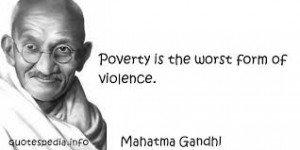As today’s world strives to gather as much facts and figures for everything, be it NASA’s recent astronomical accomplishments or a general store owner’s daily sales, even emotions and feelings have come to be a measurable commodity. How happy can a person be ? This question used to be a short and sweet conversation with our friends or near-and-dear ones until recently. Now, very few must be approving when a peer simply says ‘I am happy’ or ‘I am unhappy’. This focuses our attention towards the measurement of happiness.
Since the world has grown subjectively rational, we need to develop a metric system to sustain people’s curiosity of how can one measure and compare their happiness with others. A good approach was undertaken by Bhutan’s fourth dragon king, Jigme Singye Wangchuck. He gave a simple reasoning that real growth of an individual is more concerned with their ‘level’ of happiness and satisfaction with life, rather than material successes as increase in GNP. He gave a logical statement that happiness for a farmer is through very different channels as compared to a businessman. While the farmer becomes happy at a good harvest, the businessman opts for better profit in the business. So, even the levels of measurement must be so flexible as to allow these differences to such levels as to not impact the logical outcome.
The Gross National Happiness (GNH) was established by a panel of experts in their respective fields so that no aspect of life is left untouched. There are presently 9 domains in which one measures two important parameters – Sufficiency and Happiness. While sufficiency is like the red line of an extension cord (any compression beyond a level will result in malfunctioning) which is the necessary border-line for a normal livelihood, happiness is like the yellow line (beyond the point, performance declines) which measures the satisfaction levels of a person. Both measures explain when a person can live with current conditions and when the person is actually happy with it. If he is happy, he will work proficiently, encourage others to do same, have all aspects of his life taken into consideration and will strive for the betterment of those which are yet untouched or undermined.
While the numerical values of GNH index gives us a rough estimate, it is not the exact measure. But still, it makes us aware of what aspects are missing from our lives and therefore, we get well-informed about ourselves. The real conclusion here is that life is much beyond financial or tangible gains, it has to do with one’s sense of well-being.





56 Comments. Leave new
Nice article! 😀
It was a very good read!
Excellent piece of work.Good job!
So good ! One of my article talks about welfare economics and do comes the satisfaction among the people. I was looking forward to any tool that could numerify it and here is the key 🙂
Very well written 🙂
An interesting read 🙂
This is a fantastic article. Very well explained.
Excellent work..
Beautiful!
Thank you all for your appreciation.
Nicely researched but do you really believe that happiness is measurable?
Nice article..!
Dear Divya , I do not believe that happiness can be measured perfectly. It is impossible to do so at the national level. If we keep apart the specifics, the generic happiness levels which pertain to our livelihood may be measured by GNH.
Interesting article although I feel happiness is an emotion and it can’t really be measured in numeric value.
Nice article. A country with a high GDP may not necessarily have a high GNH .
unique article
Thank you again, dear friends.
This is a completely new information for me. Thank You 🙂
Interesting as well as unique.
Thank you guys ! I appreciate it.
Well written.
Happiness is obviously important. However, attempts to mesaure it may be misplaced. Not everything needs to be or can be measured. We often end up using a proxy to measure something that cannot be easily measured. I remember a call center wanted to measure the quality of service. They defined it as “average call duration”. It even linked agent compensation to having a low “average call duration”. Bingo. Quality of service immediately plummetted as the agents started cutting off customer calls in between so that their “average call duration” does not get worse.
Happiness can measure Happiness.
Nicely written, Nuruddin.
Thought provoking article!
Very well written Nuruddin. The ideas expressed are beautiful and thought provoking.
The article is informative.
Nice work :-).
Nice article nuru
nice article
Interesting read. Good to look things from a unique perspective. Keep up the good work!
Nicely Written by Mr. Nuruddin Bahar.
Good One Nuru !!
Nicely written.. Good one 🙂
Nice article 🙂
Nice topic to ponder over, especially when sadness has become such an epidemic. And this article should prompt more thought on how exactly can we achieve this elusive happiness!
Amazing write-up 🙂
nicely done
wonderful
besutiful
Well written 🙂
good
nice
Very well written ,keep going bro
Worth reading this article.
Earlier I thought that a,person can’t measure how happy he/she is. Generally we don’t get answer of this question but after reading this article I got to know dt happiness can be measured.
Modelling to the rescue.
Please do not do spam commenting Junta ! Your cooperation is well received.
Please do not do spam commenting Junta ! Your cooperation is well received.
Nicely written.
I believe that happiness involves engagement in activities that promotes ones highest potentials . The activity of happiness must occupy an entire lifetime . Different men seeks happiness in different ways and by different means .
Good work
Well written Nuru.
I am sure it will be possible to link Happiness to the level of activity of particular neurons in the brain, and through that construct a “measure” of how happy an individual is. But that is pointless, because when I am happy, I know I am happy. And when I am sad, I will know it.
The more interesting and important question to ask is therefore, “How does one become/sustain a sense of well-being in the world?”
Nicely written, Nuruddin 🙂
Nice read
Good one bro..keep it up
Very well written by the author. KUDOS
Very well Structured article 😀
Good work 😀
It was such an interesting read. Nice article
Well written article
very very well articulated. Great going.
Great work!